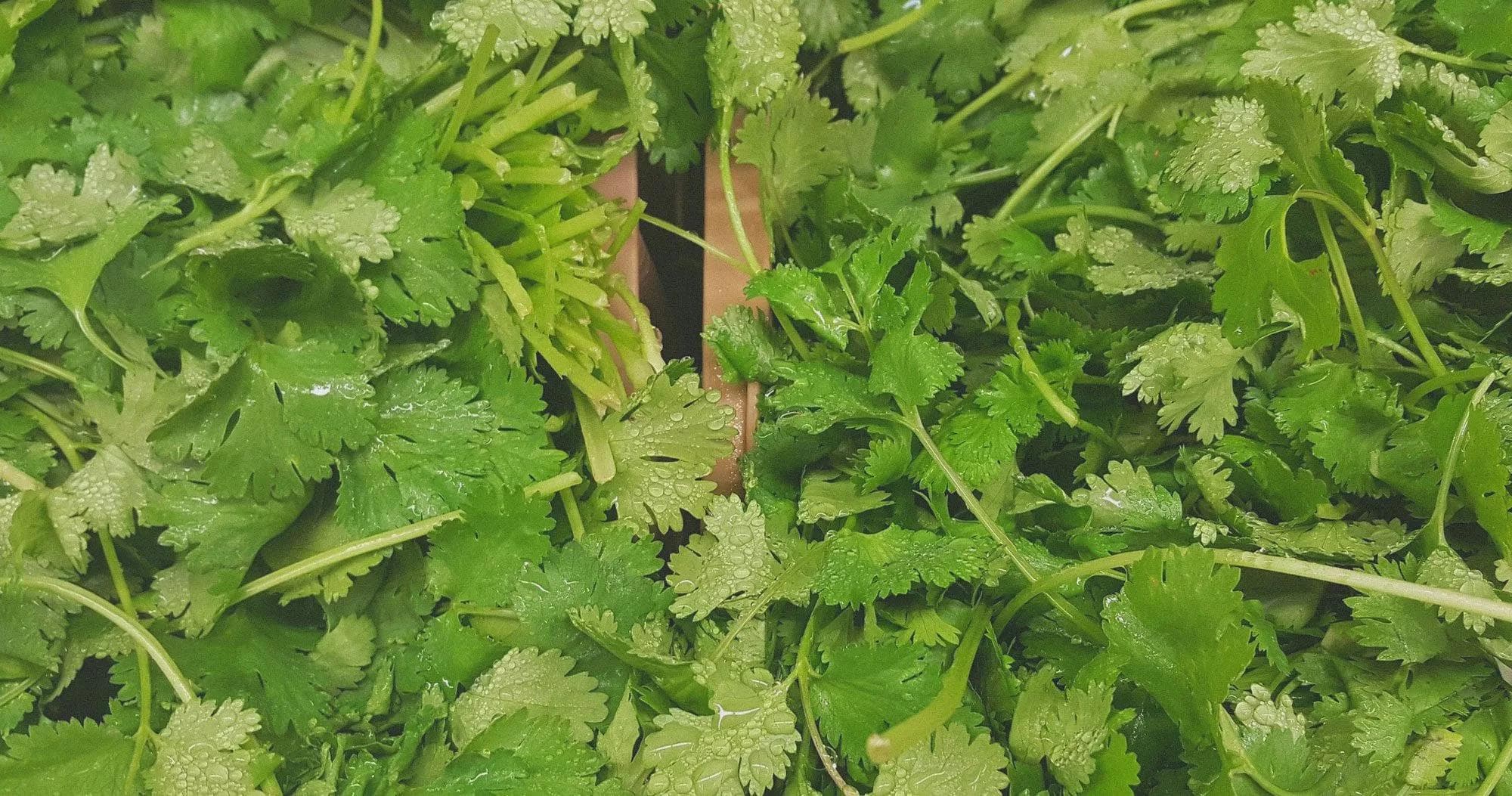How does Helix calculate your Cilantro result?

You probably already have a really good idea about how you feel about cilantro. So why in the world is Helix telling you about whether you may like the taste of it? Well, the fact that some people think cilantro tastes like soap triggered various genetic studies to determine whether your DNA plays a role—and it turns out that it does!
One important study looking at the genetic influences of this particular food preference identified a specific variant, rs7291001, as having the strongest association with disliking the taste of cilantro. This variant is just a place in DNA that is different between people, and it’s particularly interesting because it is located in a region of the genome that contains many different genes, all of them olfactory receptors. These olfactory receptors play a role in how we sense different smells. Smell is an important aspect in how we taste things, so maybe it’s not a surprise to find a strong signal for cilantro taste in this area of the genome.
In fact, a gene in this region, OR6A2, is thought to be the key gene for disliking cilantro. That is because OR6A2 is important for detecting aldehyde molecules which can be found in this herb. It highlights an important fact about the genome: just because a variant is near many interesting and seemingly relevant genes, doesn’t mean that all those genes are actually involved in a trait.
When studied, it was shown that people with a C at rs72921001 were more likely to report that they disliked cilantro. In contrast, having an A at this SNP was not. Therefore, if your genetic result is CC or CA it is more likely that you think cilantro tastes like soap!
This is not the only SNP to have been associated with cilantro, but it is the one most commonly reported in reference to cilantro taste response. Keep in mind that this result only indicates an increased probability of disliking cilantro—it is far from 100% guaranteed. In addition, when this result was tested in many different ancestral populations, the effect was only seen in Europeans and South Asians. If you have ancestry from other groups, you may want to take this result with a grain of salt (or a sprig of cilantro).